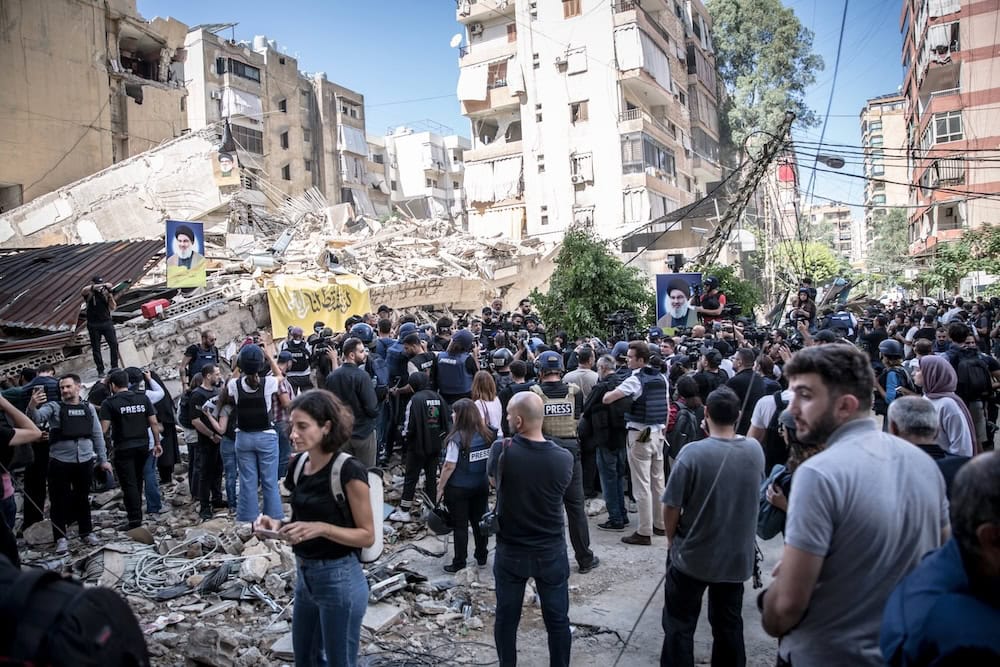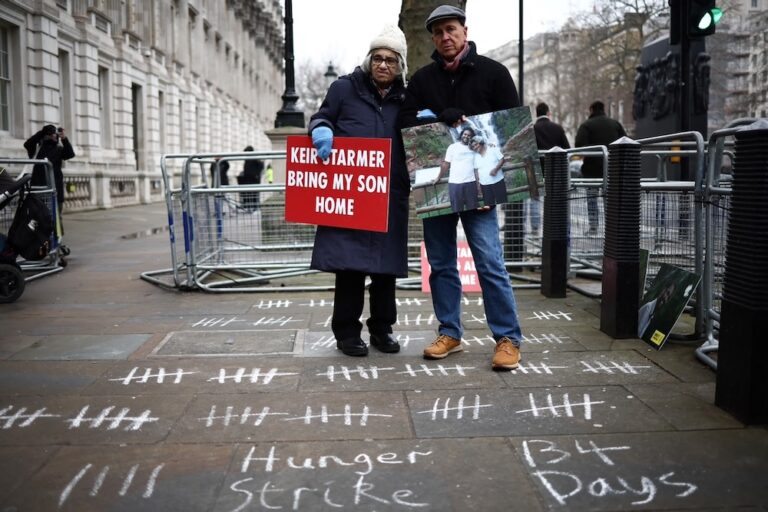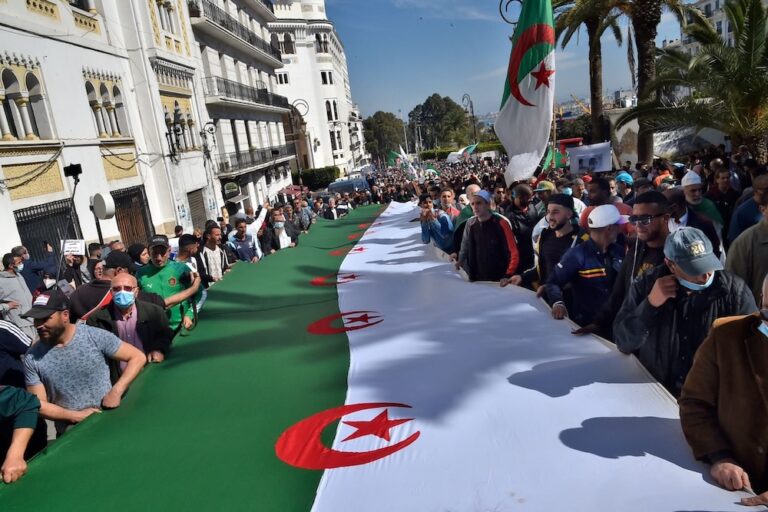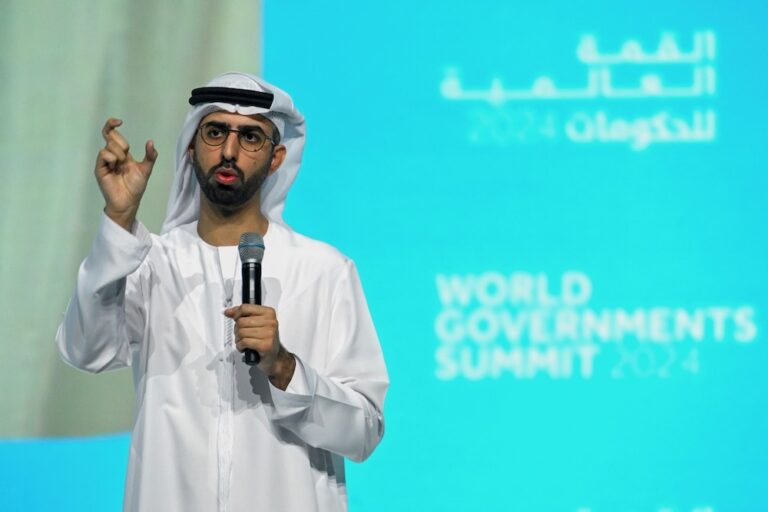September 2024 in MENA: A free expression and civic space round-up produced by IFEX’s Regional Editor Naseem Tarawnah, based on IFEX member reports and news from the region.
Israel’s digital warfare terrorizes Lebanon and Palestine, repression of dissent intensifies in Iran and Egypt with critical voices behind bars, and the International Day for Access to Information highlights ongoing struggles for transparency.
Weaponisation of digital communications amid escalating violence in Lebanon
Communications in Lebanon are threatened as Israeli attacks have rapidly escalated. Recent weeks have seen Israel launch mass bombings of civilian areas, conduct prominent assassinations, and carry out a series of coordinated wireless device explosions that left scores dead and injured in the unprecedented and indiscriminate attacks.
As the fog of Israel’s war expands into Lebanon, its attacks there have killed over 1,000 and displaced over one million people as of this writing. Rights groups report that Israel has weaponized digital communications to terrorise and mislead by spreading false information through text messages, sponsored ads, and fake WhatsApp alerts. Alarming messages warning of imminent attacks on homes have sown panic, and some residents have reported receiving calls from unknown sources attempting to extract personal and biometric information under false pretenses.
SMEX has been closely tracking these digital threats and providing critical resources to help people stay informed and connected, including how to spot disinformation and safeguarding devices. Amidst the proliferating disinformation and compromised connectivity, SMEX has called on Lebanese authorities to ensure communication channels remain accessible by extending mobile line validity, providing internet in shelters, and offering free data packages.
On 1 October, Syrian journalist Safaa Ahmad was killed in an Israeli airstrike on Damascus, marking the first journalist death in Syria this year. Her death follows the killing of two Lebanese journalists, Hadi Al-Sayed and Kamel Karaki, on 24 September, during an air raid in southern Lebanon. The increasing violence and attacks against media workers highlights the urgency of safeguarding press freedom in Lebanon and the wider region, with accountability for these acts being crucial in preventing further assaults.
Continuing to push for such accountability, Maharat Foundation joined human rights organisations in urging the UN Independent Commission of Inquiry to investigate the targeted Israeli attack on 13 October 2023 that killed journalist Issam Abdallah and wounded six others. The letter called the investigation crucial in securing justice for victims and ending impunity for Israel’s crimes against journalists.
‘There will be no one left to keep you informed’: Controlling the narratives in Palestine
While violence against journalists has escalated in Lebanon and Syria, the situation in Palestine remains particularly severe. American human rights activist Aysenur Ezgi was killed by Israeli troops in the Occupied West Bank on 5 September. The 26-year-old volunteer with the International Solidarity Movement was shot during a protest against illegal Israeli settlement expansion near the city of Nablus, where she was advocating for the protection of Palestinian farmers in surrounding villages.
In Gaza, Palestinian journalist Wafa Aludaini was killed along with her husband, 5-year-old daughter Balsam, and 7-month-old son Tamim when an Israeli airstrike struck their home in Deir Al-Balah. A prominent voice reporting from Gaza, Aludaini is the 174th journalist to be killed in the occupied territory since 7 October 2023.
RSF launched a series of flash protests across ten countries in a global awareness campaign that underscores how the alarming rate at which Palestinian journalists are being killed is jeopardising the right to information.
The organisation also filed its fourth complaint with the International Criminal Court (ICC) for war crimes committed by Israel in Gaza. noting that “as long as these homicides remain unpunished, the perpetrators will have no reason to stop.”
In a significant blow to media access, Israel shut down Al Jazeera’s office in Ramallah, further restricting the flow of information. The move drew sharp condemnation, with IFEX member MADA calling it a blatant attack on press freedom and underscored the urgent need for international action to protect Palestinian journalists.
According to the International Press Institute (IPI), Israel’s decision sets a “deeply problematic precedent that can be applied to other international media that report contrary to the authorities’ liking”, underscoring that the move is part of a wider effort by Israeli authorities to limit press freedom, including impeding media access to Gaza.
Amidst these events, discussions surrounding digital accountability have gained significant traction.
A report from 7amleh, the Arab Center for the Advancement of Social Media, highlights the urgent need for Big Tech accountability for their roles in facilitating digital harms targeting Palestinians. It notes that these platforms often implement policies that disproportionately impact Palestinian voices, suppressing content that expresses solidarity or critiques the Israeli government’s actions.
This concern is particularly relevant in light of Meta’s recent decision by its Oversight Board, which opted not to classify the phrase “From the River to the Sea” as hate speech. While the board upheld the principle of free expression, critics argue that more robust measures are needed to ensure that social media policies do not silence discussions surrounding Palestine and the rights of its people.
Moreover, the use of advanced digital tools by the Israeli military to surveil and control information flows exacerbates these issues. Reports from Human Rights Watch reveal how these technologies, which rely on the constant gathering of Palestinians’ personal data to inform threat predictions and identify targets, are designed to inflict real world harm.
A ‘blank check’ for Egypt amidst an erosion of rights
Recent changes to Egypt’s criminal procedure code have sparked concern that they may further entrench state control over dissent and restrict fundamental rights. Both the Journalists’ Syndicate and the Lawyers’ Syndicate said the amendments contain many “unconstitutional” provisions that undermine the right to a defence, the role of lawyers, and the principle of a fair public trial. This legal manoeuvring is part of a broader trend of tightening the regime’s grip on civil liberties, which continues to suffocate free expression in the country.
The plight of prisoners of conscience in Egypt is dire, with authorities violating legal norms to prolong sentences and maintain their stranglehold on dissent. Political activist Mohamed Adel, serving four years for “spreading false news,” is currently on hunger strike in protest of his extended detention.
Prominent Egyptian-British writer Alaa Abd El Fattah highlights this troubling trend. Authorities refuse to release him despite the completion of his five-year sentence on 29 September. Instead, they unjustly recalculated his release date to begin from the confirmation of his 2021 sentence, effectively extending his imprisonment to January 2027. This blatant manipulation of legal statutes underscores the urgent need for international action to uphold human rights in Egypt.
Consequently, the Cairo Institute for Human Rights Studies has raised alarms about the Biden administration’s decision to release $320 million in military aid to Egypt, warning that this amounts to a ‘blank check’ for the Sisi government amid ongoing human rights violations while urging Congress to demand accountability.
IFEX, along with 33 rights groups, condemned the recent arrests and enforced disappearance of four journalists — Ashraf Omar, Khaled Mamdouh, Ramadan Gouida, and Yasser Abu Al-Ela — and called for their immediate release. The groups also urged Egyptian authorities to drop all charges, stop targeting journalists for their work, end the pattern of enforced disappearances, and investigate allegations of torture or inhumane treatment.
Persistent repression in Iran
Marking the second anniversary of the death of Mahsa (Jina) Amini on 16 September, which ignited the “Woman, Life, Freedom” protest movement, rights groups called attention to the continued persecution of women, ethnic minorities, and journalists. The overall climate of repression has persisted despite President Ebrahim Raisi’s recent directive urging government institutions to withdraw complaints against journalists that saw only three ministries reportedly comply. Currently, 25 journalists remain behind bars, 16 of whom were imprisoned following the 2022 protests.
Authorities intensified security measures last month, particularly in Kurdish areas like Saqqez, Amini’s hometown. Security forces tightly controlled access to Amini’s burial site, summoning activists for questioning and filing cases against 14 teachers’ union members for alleged national security violations.
According to HRW, authorities have systematically punished family members of victims who demand justice for their loved ones. RSF compiled a comprehensive list of acts of repression against Iran’s women journalists, who face imprisonment and arbitrary prosecution for their reporting.
Imprisoned women are reviving the “Women, Life, Freedom” movement through hunger strikes and protests. On 15 September, imprisoned Nobel Laureate Narges Mohammadi reported that 34 women political prisoners went on hunger strike to commemorate the movement’s anniversary.
Ahead of Iran’s fourth Universal Periodic Review (UPR) at the United Nations Human Rights Council in January 2025, the Gulf Centre for Human Rights (GCHR) renewed calls for transparency and accountability, stressing the regime’s lack of cooperation with international mechanisms has left many human rights defenders and activists remain particularly vulnerable to violations.
New & Noteworthy
Marking the International Day for Universal Access to Information on 28 September, ARTICLE 19 highlights some recent strides in the MENA region towards the right to information, but notes that progress still falls short of fulfilling citizens’ needs and international standards, and urges governments to step up and ensure better transparency and accountability.
Kuwait is experiencing political turmoil following a royal decree that dissolved parliament, leading to calls for its restoration and an end to the prosecution of activists. Authorities are also arbitrarily revoking citizenship, with 912 individuals reported affected, often as a means to punish and suppress dissenting voices. Recently, the Supreme Committee for the Investigation of Kuwaiti Nationality revoked the citizenship of 78 people – the highest number in a single day – raising concerns over human rights violations in a process lacking transparency.
Palestinian journalist and filmmaker Bisan Owda won an Emmy for her Al Jazeera project, “It’s Bisan From Gaza and I’m Still Alive”. The award follows a pro-Israel lobby’s campaign to have her nomination withdrawn over alleged ties to the Popular Front for the Liberation of Palestine, reflecting a troubling trend of ongoing efforts to discredit the work of Palestinian journalists and silence their voices. The National Academy of Television Arts and Sciences opted not to rescind her nomination, citing a lack of evidence regarding Owda’s affiliation with the group.
Commenting on the recognition, Bisan Owda stated: “We all know the truth, but our fear undermines our ability to say it out loud, and sometimes even drives us to hide it! But remember that a world without colonialism is a world without fear… and that truth is the only way we can be free from fear.”



